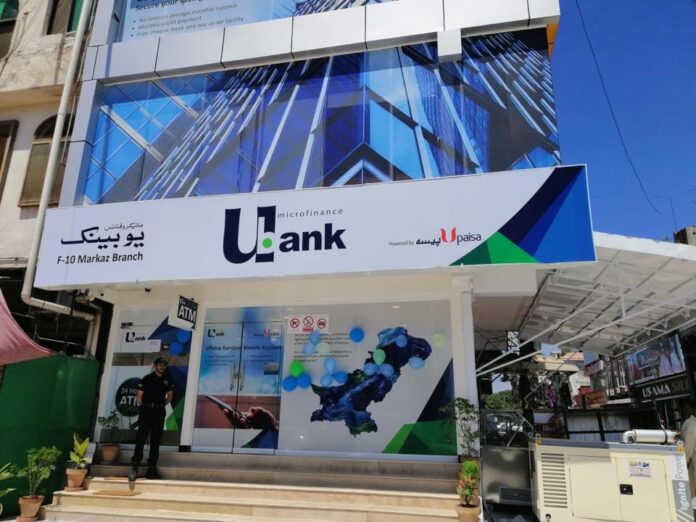LAHORE: In the midst of uncertain macroeconomic conditions, telecom operator Ufone’s microfinance bank has managed to record a profit of Rs1.2 billion in the first three quarters of 2022. That is an increase in profits of 44 per cent compared to last year for U Bank, despite this year’s floods creating havoc and disrupting the lending business in rural regions across Pakistan.
Recording an earnings per share of Rs3.38, compared to Rs2.28 in the same period last year – U Bank has increased its branches to 240 and has 50,000 active point of sales where it operates branchless banking through UPaisa. U Bank’s growth has contributed significantly to the group’s growth. The PTCL Group consists of PTCL services, Ufone 4G, and U Microfinance Bank Limited itself.
One interesting reason behind an increase in U Bank’s profit is it taking advantage of regulatory relaxation on transition to IFRS 9. U Bank used smart accounting tactics to prop up its financial performance by reversing provisions that are to be made on liabilities in its income statement. Usually in situations of floods and other macroeconomic uncertainty, provisioning is increased. U Bank, however, chose not to.
IFRS 9 specifies how an entity should classify and measure financial assets, financial liabilities, and some contracts to buy or sell non-financial items. IFRS 9 replaces IAS 39, in laying out recognition and measurement criteria of financial instruments.
U Bank has already implemented IFRS 9, as a result of which, the previous provisioning requirement, following incurred loss approach, has been replaced by Expected Credit Loss Provisions that are based on expected losses on performing as well as non-performing portfolios.
























Very Nice article about U micro finance, and achieve record profit
Excellent report about U microfinance’s record-breaking profits.
nice banks